Shows

Research Minutes podcastEducational Leadership in Challenging TimesFollowing the widespread upheaval of 2020, educational leaders are now tasked with leading their districts, schools and teams through the frustration - and uncertainty - of 2021.
A recent guide and companion video, created in partnership with experienced school leaders, offer a research-backed framework designed to help educators meet that challenge and drive school improvement in the months ahead.
Coauthors and renowned educational leadership experts Jonathan Supovitz (Penn GSE, CPRE) and John D'Auria (William James College) join CPRE Knowledge Hub managing editor Keith Heumiller to discuss the guide, and how leaders can use this opportunity to become "scientists of learning."
2021-02-1824 min
Research Minutes podcastSearching: How Families Sought Educational Support in the Wake of COVID-19Following abrupt school closures in the wake of the COVID-19 pandemic, millions of families turned to online resources to support their children's remote learning.
A new, nationwide study of internet search data, however, finds that households in wealthier areas of the country were significantly more likely to access those resources than families in lower-income areas.
Study coauthor and Boston University researcher Joshua Goodman joins CPRE Knowledge Hub managing editor Keith Heumiller to discuss those and other findings, and some important implications for education policy, practice and future research.
2021-01-0717 min
Research Minutes podcastThe Nation's Troubling Report CardThe latest results from the National Assessment of Educational Progress (NAEP) - often called the nation’s report card - paint a troubling picture of academic stagnation and widening achievement gaps among American students.
In a special episode, Harvard University professor and nationally recognized testing policy expert Daniel Koretz joins CPRE Executive Director Jonathan Supovitz to break down the latest NAEP data, and its implications for student outcomes, equity, and education policy.
Koretz and Supovitz also discuss the potential value and the future of the assessment in the wake of the COVID-19 pandemic.
2020-12-1730 min
Research Minutes podcastThe Potential Cost and Impact of Biden's Free College PlanNew analysis by the Georgetown University Center on Education and the Workforce (CEW) finds that the benefits of a free college plan proposed by President-elect Joe Biden would outweigh its costs within a decade.
The report, coauthored by CEW Director Anthony Carnevale, also examines how various approaches to free college would impact student equity and educational attainment in the years following implementation.
Carnevale joins CPRE Knowledge Hub managing editor Keith Heumiller to discuss the center's analysis and the implications of the Biden free college plan, whether it is ultimately adopted or not.
2020-12-1023 min
Research Minutes podcastNew Research Offers Recommendations for Effective SEL PartnershipsHow, and under what conditions, can schools and out-of-school time programs partner to effectively foster social emotional learning (SEL) in students?
In a new report, part of an ongoing, six-year initiative by The Wallace Foundation, researchers from the RAND Corporation share findings from dozens of sites across six large American communities, and offer research-backed lessons for implementing a successful SEL partnership.
The RAND Corporation's Heather Schwartz joins CPRE Knowledge Hub managing editor Keith Heumiller to discuss the report, and what her team has learned from one of most comprehensive SEL implementation studies ever performed.
2020-12-0323 min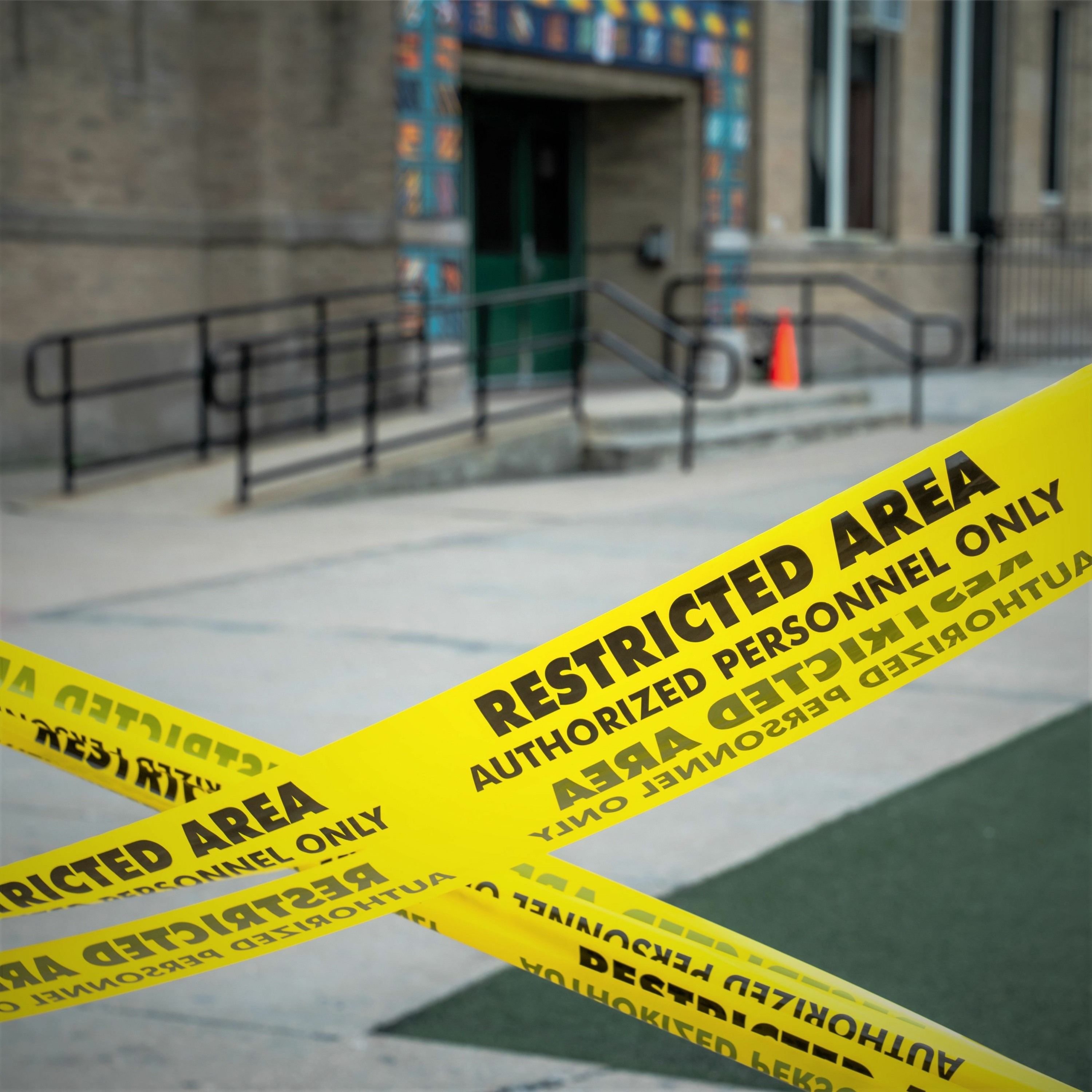
Research Minutes podcastPedro Noguera: Structural Racism and the Urban Geography of EducationThis year's widespread protests for racial justice have brought new attention the persistence and perniciousness of structural racism in America.
In a new article in Phi Delta Kappan Magazine, USC Rossier School of Education Dean Pedro Noguera traces the history of structural racism as it relates to urban schooling, and its myriad impacts on students of color in cities like Chicago, New Orleans and Los Angeles.
Noguera joins CPRE Executive Director Jonathan Supovitz to discuss the article, and the ways in which school leaders, teacher preparations programs, communities and even students themselves can work together to fight for change.
2020-11-1221 min
Research Minutes podcastRobert Sternberg: The Power of 'Adaptive Intelligence'From global health crises to climate change, today's students and future generations will face a cascade of unprecedented challenges and threats, requiring new modes of thinking and problem-solving.
In a new article in Phi Delta Kappan Magazine, renowned psychologist and Cornell University Professor Robert Sternberg questions our traditional approach to testing and intelligence assessment, and whether today's students are being adequately prepared to meet the challenges of tomorrow.
Sternberg joins Jonathan Supovitz, executive director of the Consortium for Policy Research in Education (CPRE) at Penn GSE, to discuss the concept of "adaptive intelligence," and how schools and educators can help...
2020-10-2933 min
Research Minutes podcastNudging, Chatbots and Student Outreach in Higher EducationNew research led by the University of Pittsburgh's Lindsay Page finds that nudging - through the use of artificially intelligent chatbots - can offer a significant boost to certain college outreach and engagement efforts.
In their study of a unique chatbot system used by Georgia State University, researchers identified the conditions under which nudging was most effective, and the outreach efforts that benefitted most.
Page joins CPRE Knowledge Hub managing editor Keith Heumiller to discuss the study, and some implications for colleges and universities hoping to maintain engagement with students in the wake of the COVID-19 pandemic.
2020-10-2218 min
Research Minutes podcastThe Big Business of School LunchSchool food programs can have a wide range of impacts on students, families and local workers, all of which were thrown into high relief by the COVID-19 pandemic.
In a new article in the October 2020 issue of Phi Delta Kappan Magazine, University of Wisconsin-Madison researcher Jennifer Gaddis discusses those impacts, and how they are influenced by a school's reliance on outsourcing and large-scale food service providers.
Her article also traces the history and evolution of school food programs in the U.S., and the promise and viability of alternative, in-house approaches to food service.
Gaddis joins CPRE Executive Director Jonathan...
2020-10-1534 min
Research Minutes podcastHow Are Governors Spending Their Coronavirus Education Aid?As the COVID-19 pandemic swept across the country in March, Congress allocated roughly $3 billion in direct education aid to U.S. governors under the the Governor Emergency Education Relief Fund .
A new analysis by FutureEd and The Hunt Institute examines how states have allocated those funds, and what those spending decisions might say about the educational priorities for each governor.
FutureEd Editorial Director Phyllis Jordan joins CPRE Knowledge Hub managing editor Keith Heumiller to discuss the analysis and some implications for policymakers, schools and other stakeholders in the midst of a lingering national recession.
2020-10-0815 min
Research Minutes podcastStudy Links Community College Bachelor's Programs to Declines in For-Profit EnrollmentMore than 125 community colleges in over 20 states now offer bachelor's degree programs to local students.
In one of the first studies of its kind, Johns Hopkins University's Dennis Kramer II and the University of Florida's Justin Ortagus set out to examine how those programs impacted enrollment at nearby colleges and universities in Florida.
Kramer and Ortagus join CPRE Knowledge Hub managing editor Keith Heumiller to discuss their findings, and some key implications for policymakers, school leaders and families in the wake of a national economic recession.
2020-10-0123 min
Research Minutes podcastRacial Attitudes, Teacher Bias and Student OutcomesA new national study offers some of the first large-scale evidence on the scope of implicit teacher bias in American classrooms, and the relationship between teacher attitudes and student outcomes like academic performance and discipline.
Lead author and Harvard University researcher Mark Chin joins CPRE Knowledge Hub managing editor Keith Heumiller to discuss the study, which found that counties with higher levels of teacher bias have larger adjusted inequalities between black and white students in areas like test scores and suspensions.
Chin also discusses some implications and recommendations for policymakers, practitioners and other stakeholders in the wake of sweeping protests...
2020-09-2414 min
Research Minutes podcastAre Smartphones Hurting College Students' Grades? Findings from an 11-Year StudySmartphones may be linked to decreased knowledge retention and lower grades in college, according to a recently published study led by Rutgers University psychology Professor Arnold Glass.
The study, conducted at Rutgers over 11 years, found that students who used smartphones to complete class assignments were significantly less likely to remember that material during closed-book exams.
Glass joins CPRE Knowledge Hub managing editor Keith Heumiller to discuss his findings, their relation to K-12 education, and some important implications for policymakers, school leaders, and instructors across the U.S.
2020-09-1023 min
Research Minutes podcastEducation Research in the Wake of COVID-19When schools closed their doors this spring, countless educational case studies, clinical trials, surveys and other research came to an abrupt halt.
While not as dire as the pandemic's impacts on health and instruction, this widespread disruption could reverberate in the education field for years to come.
A new article, coauthored by a team of researchers including the University of Texas at Austin's David DeMatthews, sheds light on those impacts and offers a number of recommendations for researchers hoping to resume their work - and possibly transform it - in the years ahead.
DeMatthews joins CPRE Knowledge Hub managing editor...
2020-09-0321 min
Research Minutes podcastStudy: Some Students Lose Nearly All Academic Gains During SummerA new study into summer learning loss details the academic costs - and the cumulative impacts - of time spent away from school.
The study, led by the University of Colorado Boulder's Allison Atteberry and the RAND Corporation's Andrew McEachin, found that more than half of students experienced learning loss every summer from first through sixth grade.
While some students actually made gains over the summer, the study found that others lost nearly 90 percent of their academic progress over the same period.
Atteberry joins CPRE Knowledge Hub managing editor Keith Heumiller to discuss her team's findings, and some important implications f...
2020-07-3015 min
Research Minutes podcastTeacher Experiences and Working Conditions in the Wake of COVID-19Schools with more supportive working conditions were far more successful at helping their teachers maintain a sense of success during COVID-19-related school closures, according to a multi-state survey conducted by researchers Matthew Kraft (Brown University) and Nicole Simon (CUNY).
The survey, conducted in partnership with Upbeat, also found that mid-career teachers particularly struggled to balance work and home responsibilities this spring, while veteran teachers were significantly more likely to report discomfort with remote learning technology.
Kraft and Simon join CPRE Knowledge Hub managing editor Keith Heumiller to discuss the survey, and some important implications for districts, schools and teachers...
2020-07-2327 min
Research Minutes podcastSchool Funding in the Wake of COVID-19Balancing widespread health, academic and political challenges in the wake of the COVID-19 pandemic, districts and schools will also face the prospect of reduced budgets as they attempt to resume instruction this fall.
Renowned economist and education researcher Eric Hanushek (Stanford University) joins CPRE Executive Director Jonathan Supovitz (University of Pennsylvania) to discuss the potential economic and workforce impacts of the pandemic, and how a prolonged downturn might affect students.
Hanushek also offers some research-backed recommendations for states, districts and school leaders hoping to rebound from one of the greatest educational challenges in living memory.
2020-07-0925 min
Research Minutes podcastSchool Reopenings: Lessons from Home and AbroadAfter facing extended school closures and the cascading socioeconomic impacts of the COVID-19 pandemic, students will require an unprecedented level of support in their return to school this year.
A new report, coauthored by The Johns Hopkins Institute for Education Policy and Chiefs for Change, analyzes successful interventions across the globe and offers research-backed recommendations for states, districts and school leaders now planning for the fall and beyond.
Report coauthors and Johns Hopkins University researchers David Steiner and Ashley Rogers Berner join CPRE Knowledge Hub managing editor Keith Heumiller to discuss their findings and some important planning considerations for stakeholders...
2020-07-0123 min
Research Minutes podcastCould Large-Scale Tutoring Address COVID-Related Learning Loss?Students will face an uphill battle returning to school in the wake of the COVID-19 pandemic, according to a growing body of research on the academic costs of extended school closures.
Could large-scale tutoring help level the playing field?
We speak with Robert Slavin, Director of the Center for Research and Reform in Education at Johns Hopkins University and co-founder of the Success for All Foundation.
Slavin joins CPRE Executive Director Jonathan Supovitz to discuss decades of research into the benefits of tutoring, and the promise - and feasibility - of offering quality tutoring to millions of students in the 2020...
2020-06-2520 min
Research Minutes podcastStudy: Black and Latino Students More Likely to Experience 'Math Traps'Math tracking is widely used in American schools to group students according to academic ability and need. A recent study, however, found that tracking can significantly reduce students' academic mobility, landing many in "math traps" from which escape is nearly impossible.
Study coauthors Federick Ngo (University of Nevada, Las Vegas) and David Velasquez (University of Southern California) join CPRE Knowledge Hub managing editor Keith Heumiller to discuss their findings, and some important implications for policy, practice and future research.
2020-06-1117 min
Research Minutes podcastIdeology and Instruction: How Teachers Perceive News SourcesPersonal views and political leanings can influence a teacher's perception of news source credibility, according to a study of more than 1,000 high school social studies teachers across six states.
The study, coauthored by Northeastern State University's Christopher Clark and the University of Georgia's Mardi Schmeichel, also found that a teacher's operational definition of credibility can influence how they perceive various news sources.
Clark and Schmeichel join CPRE Knowledge Hub managing editor Keith Heumiller to discuss their findings and offer some evidence-backed strategies for teachers - and students - across the country.
2020-06-0429 min
Research Minutes podcastEngagement, Access and Morale: How Are Students Responding to Extended School Closures?A new survey of teachers and district leaders finds that COVID-19-related school closures have had significant impacts on student engagement, truancy, morale and educational equity.
The survey - the latest in a series conducted by the Ed Week Research Center since March - also offers a window into district officials' plans for reopening in the 2020-21 school year, and the perceived effectiveness of various remote learning tools.
Holly Kurtz, director of the Ed Week Research Center, join CPRE Knowledge Hub managing editor Keith Heumiller to discuss the survey results and some important implications for educators and district officials across...
2020-05-2121 min
Research Minutes podcastStudy: Disadvantaged Families Less Likely to Apply for Universal Pre-KUniversal prekindergarten programs, which offer free enrollment for most or all age-eligible children in a city or state, have been expanding in the U.S. in recent years. Few studies, however, have examined which families do – and which families don’t – apply to them.
A recent study of thousands of Boston students, coauthored by the University of Michigan’s Anna Shapiro and Christina Weiland, finds that non-white and economically disadvantaged families are significantly less likely to apply and enroll in universal pre-k.
Shapiro and Weiland join CPRE Knowledge Hub managing editor Keith Heumiller to discuss their findings and some important implicat...
2020-05-1419 min
Research Minutes podcastWill School Closures Lead to a 'COVID-19 Slide'?Forty-six states and Washington D.C. have officially extended school closures to the end of the 2019-20 academic year in response to the COVID-19 pandemic. Now, as millions of students face extended time away from schools, parents and researchers are questioning the academic cost.
We speak with Ian Rosenblum, executive director of The Education Trust New York, and Elisha Smith Arrillaga, executive director of The Education Trust West, about new polls showing that parents are overwhelmingly concerned about students falling behind in the wake of the pandemic.
Then CPRE Executive Director Jonathan Supovitz speaks with NWEA research scientist Megan Kuhfeld...
2020-05-0740 min
Research Minutes podcastCategorical Inequality: The Persistence of Racial Gaps in EducationA new study examines the gaps between black and white students in areas like discipline, grade-level retention and gifted program enrollment, and how those gaps are linked both within and across school districts in the U.S.
Study coauthor Kenneth Shores (Penn State University) joins CPRE Knowledge Hub managing editor Keith Heumiller to discuss his team's findings, and some important implications for policymakers, school leaders and other stakeholders.
2020-04-2326 min
Research Minutes podcastScience, Engineering and ‘The Cat in the Hat’: Can Videos and Games Improve Early Learning?In a new study, researchers found that a suite of digital games and videos centered on "The Cat in the Hat" had meaningful impacts on young children's knowledge of - and engagement with - science and engineering concepts.
Study coauthors Todd Grindal (SRI International) and Megan Silander (EDC) join CPRE Knowledge Hub managing editor Keith Heumiller to discuss their team's findings, and some important implications for early childhood education, policy and future research.
2020-04-1625 min
Research Minutes podcastOpportunity for All: A Research-Backed Framework for Quality and Equality in EducationOn the 100th episode of Research Minutes, renowned researchers Jennifer O’Day and Marshall “Mike” Smith join CPRE Director Jonathan Supovitz to discuss an ambitious vision of the future of American education.
Drawing on their new book “Opportunity for All,” Smith and O’Day discuss decades of research into educational inequality and the failures of past efforts aimed at addressing it.
They also present a research-backed framework to promote quality – and equality – in schools across the country.
2020-03-2631 min
Research Minutes podcastThe Hidden Costs of Teacher TurnoverResearchers have found that teacher turnover costs U.S. schools billions of dollars each year. Significantly less is known, however, about its impacts on teaching quality and staff composition.
A new study of those "hidden costs," coauthored by the University at Albany’s Lucy Sorensen and Duke University’s Helen Ladd, finds that turnover can have significant and lasting negative impacts on instructional staff quality and student achievement.
Sorensen joins CPRE Knowledge Hub managing editor Keith Heumiller to discuss the study and some important takeaways for education policy and future research.
2020-03-1913 min
Research Minutes podcastCan Same-Race Teachers Boost Parental Engagement in Head Start?A new study of thousands of American families examined the relationship between teacher race, ethnicity and parental engagement in Head Start early childhood programs.
The study, coauthored by UCLA's Anna Markowitz, found that race and ethnicity matching between teachers and parents can lead to notable impacts on parental involvement, workshop attendance and even student absenteeism.
Markowitz joins CPRE Knowledge Hub managing editor Keith Heumiller to discuss those findings and some important implications for policymakers, practitioners and families across the country.
2020-03-1220 min
Research Minutes podcastDo GPAs and ACT Scores Predict College Completion?In a new study, researchers examined the accuracy and consistency of grades and test scores in measuring a high school student’s academic readiness for the college.
The study, coauthored by the University of Chicago’s Elaine Allensworth, found that students with the same GPA or ACT score can complete college at significantly different rates, depending on the high school they attended.
Allensworth joins CPRE Knowledge Hub managing editor Keith Heumiller to discuss those and other findings, and some important implications for education policy and future research.
2020-03-0516 min
Research Minutes podcastExamining the Impacts of the NYC Community Schools InitiativeCommunity schools – which offer a variety of supports to serve the comprehensive needs of students, families and their communities – have dramatically expanded in the U.S. in recent years, with more than 5,000 now operating nationwide.
In a new study, researchers from the RAND Corporation examined the implementation and impacts of the New York City Community Schools Initiative, the largest program of its kind in the nation.
The study, coauthored by RAND’s William Johnston, found that the initiative has had positive impacts on a range of outcomes, including student attendance and grade progression.
Johnston joins CPRE Knowledge Hub managing editor Keith...
2020-02-2812 min
Research Minutes podcastUnderstanding the Cost of CollegeFor many prospective students and families, it can be difficult to understand the full costs of attending and completing a post-secondary degree program.
To make those costs more transparent, the federal government requires all colleges participating in federal student aid programs to post a net price calculator (NPC) on their official website.
A recent study, however, finds that NPCs can provide incomplete, outdated or even misleading information to prospective students.
Study co-author and Penn AHEAD executive director Laura Perna joins CPRE Executive Director Jonathan Supovitz to discuss her team's findings and some important implications for higher education policymakers and college...
2020-02-2020 min
Research Minutes podcastCollege Bound: Examining the Impacts of Dual-Credit CoursesIn the first study of its kind, researchers examined the impacts of dual-credit math coursework on a range of student outcomes, including college enrollment and course-taking behavior.
The study, performed in Tennessee and co-authored by UNC Chapel Hill's Steven Hemelt, finds that certain dual-credit courses can have a significant impact on a student's academic journey.
Hemelt joins CPRE Knowledge Hub managing editor Keith Heumiller to discuss his team's findings, and their implications for policy, practice and future research.
2020-02-1320 min
Research Minutes podcastStudy Questions Reliability of edTPA Performance Assessment SystemNearly 20 states use the edTPA performance assessment system to determine if pre-service teachers are ready for the classroom.
A new study led by Rutgers University's Drew Gitomer and UCLA's Jose Felipe Martinez now raises questions about the reliability and validity of edTPA measurements.
Gitomer and Martinez join CPRE Knowledge Hub managing editor Keith Heumiller to discuss their findings, recently published in the American Educational Research Journal, and some important implications for performance assessment policy and future research.
2020-02-0624 min
Research Minutes podcastRace, Gender and Implicit Teacher BiasA new study of hundreds of K-12 math teachers examines how race and gender can play a role in grading practices - and potential implicit biases - in the classroom.
The study, coauthored by University of Southern California researcher Yasemin Copur-Gencturk, finds that student "ability ratings" can change based on the race or gender of both the student and the teacher.
Copur-Gencturk joins CPRE Knowledge Hub managing editor Keith Heumiller to discuss the study and some important implications for policy, practice and future research.
2020-01-3016 min
Research Minutes podcastGentrification and Declining Enrollment in Urban Neighborhood SchoolsWhile many studies have examined the impact of gentrification on urban neighborhoods and housing, relatively few have examined its effects on local schools.
A new study led by Stanford University’s Francis Pearman provides the first national evidence on patterns and relations of gentrification with respect to urban schooling, finding links between race, socioeconomic status and enrollment in neighborhood schools.
Pearman joins CPRE Knowledge Hub managing editor Keith Heumiller to discuss his findings and their potential implications for urban policy and future research.
2020-01-2322 min
Research Minutes podcastThe Influence of Executive Function on Elementary Reading ComprehensionDo skills like working memory and inhibitory control play a role in reading comprehension?
A new study of more than 18,000 students led by Temple University’s Isabelle Chang examines the relationship between executive function and reading comprehension outcomes throughout elementary school.
Chang joins CPRE Knowledge Hub managing editor Keith Heumiller to discuss her findings and some important takeaways for teachers, parents, policymakers, and fellow researchers.
2020-01-1615 min
Research Minutes podcastMisplaced: The Accuracy and Limitations of College Readiness IndicatorsMore than half of all students enrolling in community college are placed into developmental education, the non-credit math and English courses designed to prepare students for college-level work.
A newly published statewide study, however, found that a significant percentage of Florida students had been misplaced in the developmental education system.
CNA research analyst Daniel Leeds and Florida State University’s Christine Mokher join CPRE Knowledge Hub managing editor Keith Heumiller to the discuss the study, and what their findings might say about our current approach to college placement.
2020-01-0920 min
Research Minutes podcastCan Childcare Subsidies Influence Future Academic Performance?Nearly 800,000 low-income families across the U.S. receive childcare subsidies through the federal Child Care Development Fund each month.
A new study, led by IDB's Wladimir Zanoni and Georgetown University's Anna Johnson, finds that those subsidies can play a role in a student's academic performance throughout elementary school.
Zanoni joins CPRE Knowledge Hub managing editor Keith Heumiller to discuss the study, and its potential implications for early childhood policy and future research.
2019-12-1928 min
Research Minutes podcastMoney and Merit: Are Advantaged Students More Likely to Be 'Gifted'?Gifted services - the academic programs and supports offered to children with exceptional talents or abilities - can open new doors for students throughout their education.
A new national study, however, finds that those services are significantly more likely to be directed to students from wealthier, more advantaged families.
Study co-author and Vanderbilt University researcher Jason Grissom joins CPRE Knowledge Hub managing editor Keith Heumiller to discuss his team's findings, and some important implications for gifted services policy and practice.
2019-12-0619 min
Research Minutes podcastThe Growing Burden of Graduate Student DebtAdvanced degree borrowers now account for roughly 40 percent of the nation's $1.6 trillion in total student loan debt, and a new study finds that some students are more likely to bear that burden than others.
The study, coauthored by Stanford University researcher Jaymes Pyne, examines the growth of graduate student debt in the U.S., and its disproportionate impacts on African Americans and economically disadvantaged students.
Pyne joins CPRE Knowledge Hub managing editor Keith Heumiller to discuss his findings, their implications, and some important takeaways for stakeholders across the country.
2019-11-2115 min
Research Minutes podcastStudy: Offering Bachelor's Degrees Can Lead to Tuition Increases at Community CollegesIn an effort to address workforce needs and serve local students and families, a growing number of U.S. community colleges have begun offering bachelor's degree programs in recent years.
A new national study finds that those offerings - while beneficial to students - can also lead to college-wide increases in tuition and fees.
Study co-author and University of Florida researcher Justin Ortagus joins CPRE Knowledge Hub managing editor Keith Heumiller to discuss the study, and some important implications for higher education policy and future research.
2019-11-1414 min
Research Minutes podcastNetworks for School Improvement: Evidence-Backed Lessons for Leaders, Managers and PractitionersIn recent decades, new networks for school improvement (NSI) have proliferated across the country. These emerging networks present education leaders with an opportunity to build dynamic infrastructures to engage schools and improve teaching and learning.
A new CPRE workbook, authored by five researchers from Teachers College at Columbia University and the University of Michigan, offers seven lessons for successful NSI management, based on years of interviews and observations in the field.
Workbook coauthors Priscilla Wohlstetter (Teachers College) and Angela Lyle (University of Michigan) join CPRE Knowledge Hub managing editor Keith Heumiller to discuss the workbook, and some important takeaways for...
2019-11-0719 min
Research Minutes podcastDemands, Resources and Turnover: A Decade of Research into Teacher StressDespite extensive training and career preparation, roughly a quarter of all new teachers will leave their position after only a year. A significant contributor, according to researchers, is teacher stress.
In a new article in Phi Delta Kappan Magazine, University of Texas at Austin researcher Christopher J. McCarthy details more than a decade of research into teacher stress, including the interplay between school resources, demands, coping resources, and job satisfaction.
McCarthy joins CPRE Knowledge Hub managing editor Keith Heumiller to discuss his findings, his new Kappan article, and some key takeaways for those hoping to reduce or prevent teacher stress...
2019-10-3118 min
Research Minutes podcastJames Heckman: A Quality Pre-K Experience Can Impact GenerationsNobel Prize-winning economist James Heckman joins CPRE Director Jonathan Supovitz to discuss the latest research into the Perry Preschool Project, a landmark 1960’s study that examined the impacts of high quality preschool on at-risk children.
More than 50 years later, Heckman finds that the program has not only changed the lives of its former students, but the lives of their children as well.
Heckman and Supovitz discuss the study and some important takeaways for early childhood policy, practice, and future research.
2019-10-2431 min
Research Minutes podcastThe Educational Toll of the Great RecessionNew research finds that spending cuts following the 2007 economic recession had significant impacts on student achievement, particularly in districts serving low-income and minority populations.
The study, led by Penn State University's Kenneth Shores and George Mason University's Matthew Steinberg, found that students in counties most affected by the recession lost approximately a quarter of their expected annual gains between grades three and eight, compared to students in the least impacted counties.
Shores and Steinberg join CPRE Knowledge Hub managing editor Keith Heumiller to discuss their findings, and some important lessons learned from one of the most challenging periods in American...
2019-10-1727 min
Research Minutes podcastCan Full-Day Pre-K Improve Kindergarten Readiness?A new study led by the University of Colorado Boulder's Allison Atteberry provides the first rigorous evidence of the impact of full-day preschool on children’s school readiness skills.
The study, co-authored by University of Virginia researchers Daphna Bassok and Vivian C. Wong, finds that full-day preschool can have significant positive impacts on student vocabulary development and teacher-reported measures including literacy, math skills and social-emotional development.
Atteberry joins CPRE Knowledge Hub managing editor Keith Heumiller to discuss the team's findings and their potential implications for policy, practice, and future research.
2019-10-1017 min
Research Minutes podcastStudy: Secessions Have Increased Segregation Between Southern DistrictsSchool district secessions - wherein communities "splinter" from an established district to form their own - have become increasingly common in the last 20 years, particularly in the southern U.S.
According to a new study co-authored by Penn State University's Erica Frankenberg, those secessions can have significant impacts on local communities and schools, and lead to increased racial segregation between districts.
Frankenberg joins CPRE Knowledge Hub managing editor Keith Heumiller to discuss her team's findings, and their implications for education policy, local government, and future research.
2019-10-0324 min
Research Minutes podcastCan New Screening Systems Identify Better Teaching Candidates?In an effort to improve the identification, assessment, and hiring of qualified teaching candidates, the Los Angeles Unified School District adopted a new "Multiple Measures Teacher Selection Process" in the 2014-15 school year.
According to a new study led by USC PhD candidate Paul Bruno, the system has notably impacted outcomes such as teacher attendance, classroom evaluations, and student performance.
Bruno joins CPRE Knowledge Hub managing editor Keith Heumiller to discuss his findings and some important takeaways for districts, school leaders, and practitioners across the country.
2019-09-1920 min
Research Minutes podcastMind the Gaps: How Teachers, Principals, and Districts Experience Standards-Based ReformDo accountability policies under standards-based reform efforts disproportionately impact teachers over principals and district officials?
A new multi-state study led by the University of Pennsylvania's Adam Kirk Edgerton set out to examine how policy environments differ for each group, and how gaps between them can impact outcomes like teacher preparedness and classroom instruction.
Edgerton joins CPRE Director Jonathan Supovitz to discuss his findings, and some important takeaways for teachers, school leaders, and policymakers across the U.S.
2019-09-1117 min
Research Minutes podcastStudy: Quality of Head Start Centers Can Vary By ClassroomHead Start, the nation’s largest publicly funded preschool program, holds licensed centers and agencies accountable through a set of defined quality standards.
A new study led by Northwestern University's Terri Sabol, however, finds that the overall quality rating of a Head Start center can vary substantially, depending on which classrooms are evaluated.
Sabol joins CPRE Knowledge Hub managing editor Keith Heumiller to discuss her team's findings and their implications for educators, policymakers, and future research.
2019-09-0519 min
Research Minutes podcastStudy Finds Promise in Online ‘Growth Mindset’ InterventionIn the largest study of its kind, dozens of researchers set out to learn if a short, online intervention could foster a growth mindset in students, and whether it could positively impact academic achievement.
Lead author and University of Texas at Austin researcher David Yeager joins CPRE Knowledge Hub managing editor Keith Heumiller to discuss the study, which involved 12,500 students at 65 schools across the U.S.
Yeager also discusses some noteworthy findings and key takeaways for policy, practice, and future research.
2019-08-2818 min
Research Minutes podcastHow Do Teachers Define College Readiness?Responding to workforce demands and growing pressure on students to earn a post-secondary degree or certificate, U.S. high schools have increasingly focused on "college readiness." It's a concept, however, that can be difficult to formally define.
In a new study led by the University of Washington's Julia Duncheon, researchers explored how a teacher's background, academic focus, and personal experience can influence their definition of "college readiness."
Duncheon joins CPRE Knowledge Hub managing editor Keith Heumiller to discuss her findings and their potential implications for instruction, policy, and future research.
2019-08-2222 min
Research Minutes podcast‘Principal Pipelines’ Can Boost Achievement and Reduce TurnoverThe Wallace Foundation's six-year, $85 million "Principal Pipelines" initiative led to notable gains in reading, math, and leadership turnover across more than 1,100 urban schools, according to a new study from the RAND Corporation.
The study, led by RAND Office of Research Quality Assurance Director Susan Gates, also found that some of the most effective elements of the initiative can be implemented at little cost.
Gates joins CPRE Knowledge Hub managing editor Keith Heumiller to discuss her findings and some important takeaways for districts and stakeholders across the country.
2019-08-1420 min
Research Minutes podcastCan Test Metadata Help Schools Measure Social-Emotional Learning?Social-emotional learning (SEL) competencies like self-efficacy and conscientiousness can be predictive of long-term academic achievement. But they can also be difficult to measure.
In a new study led by NWEA's James Soland, researchers investigated whether assessment metadata - the way students approach tests and surveys - can provide useful SEL data to schools and educators.
Soland joins CPRE research specialist Tesla DuBois to discuss his findings, their implications, and the promise and limitations of student metadata in general.
2019-08-0817 min
Research Minutes podcastFree Pre-K: How Cities are Growing and Funding High Quality ProgramsFrom property tax to "soda tax," U.S. cities have found creative ways to fund and grow free, high quality preschool programs. Now families - and researchers - are reporting on the personal and academic benefits of those programs for local children.
We welcome Shante` Brown (Director of Operations, PHLpreK), Milagros Nores (Research Co-Director, NIEER) and Phil Sirinides (Senior Research Specialist, CPRE) to discuss two growing programs in Seattle and Philadelphia, and their unique approaches to fostering quality and improving access.
2019-07-2426 min
Research Minutes podcastBorn to Win, Schooled to LoseFrom kindergarten to the workforce, disadvantaged students face significantly longer odds than their advantaged counterparts, according to a new report from the Georgetown University Center on Education and the Workforce (CEW).
The report, which found that less talented students from affluent beginnings are more than two times as likely to begin a successful career as even the most talented students from disadvantaged families, paints a stark picture of status, race, and lifelong achievement gaps in the U.S.
Georgetown CEW Director Anthony Carnevale joins CPRE Knowledge Hub managing editor Keith Heumiller to discuss the report and its implications for education...
2019-07-1722 min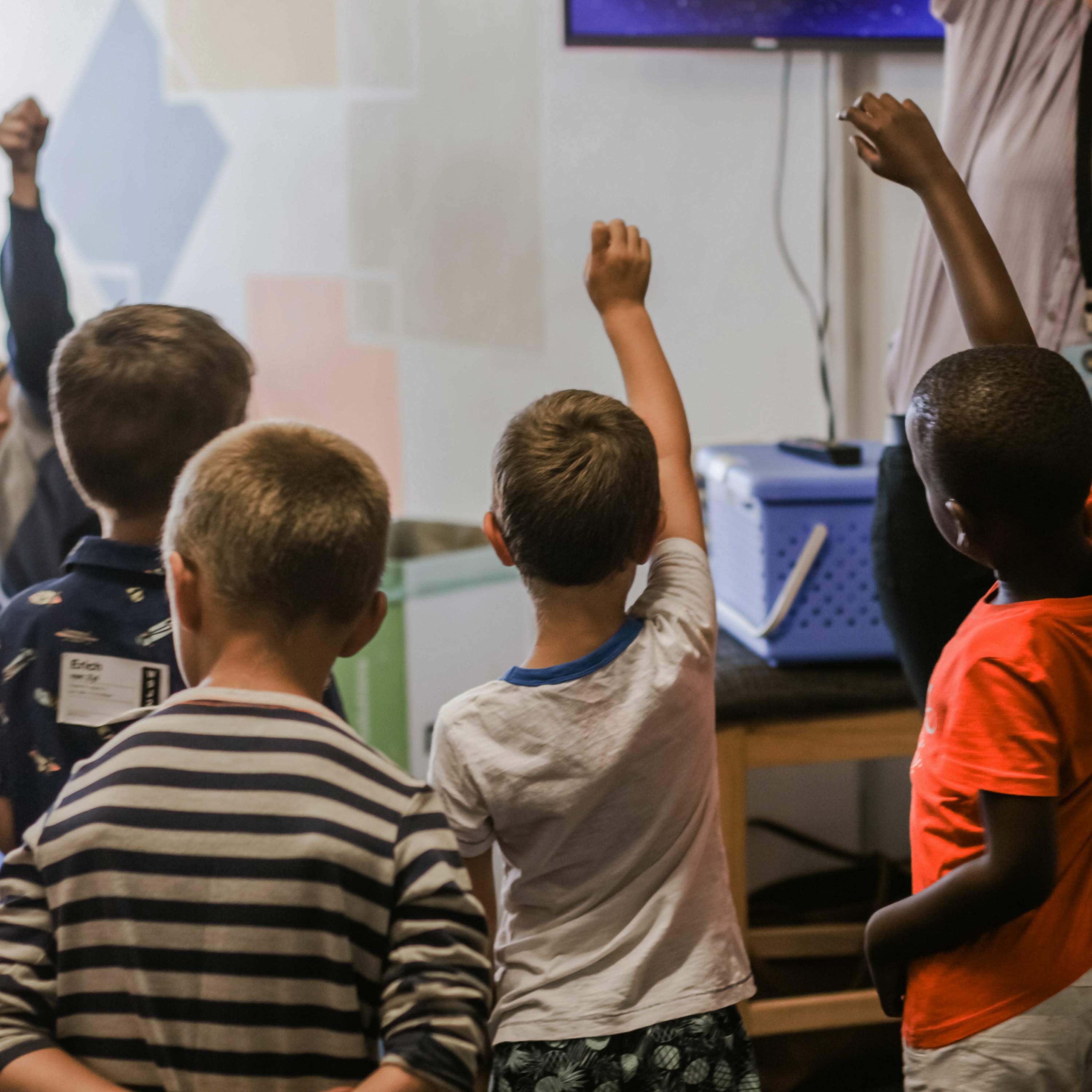
Research Minutes podcastThe Role of Race in Special Education IdentificationA new, wide-ranging study led by Michigan State University's Todd Elder finds that a student's race can play a significant role in whether or not they are identified with a disability.
Elder joins CPRE Knowledge Hub managing editor Keith Heumiller to discuss his study - which analyzed birth and education records for every child born in Florida over a ten-year span - and its potential implications for practitioners, policymakers, and future research.
2019-07-1025 min
Research Minutes podcastThe Unintended Consequences of Performance-Based FundingPerformance-based funding, which ties a portion of a college’s state support to outcomes like graduation rates and degree production, remains one of the most widely used accountability drivers in higher education. In recent years, however, researchers have found that it can have unintended consequences for underrepresented student groups.
One of those researchers, Seton Hall University’s Robert Kelchen, led a national study of colleges and universities to understand the impact of performance-based funding, and whether targeted bonuses can boost enrollment rates for minorities and low-income students. He joins CPRE research specialist Robert Nathenson to discuss his findings and their pote...
2019-06-2717 min
Research Minutes podcastTeacher Demoralization and ‘De-Professionalization’ in the NCLB EraFrom high-stakes testing to heightened federal accountability, the No Child Left Behind Act brought myriad changes to American classrooms. According to two new studies by the University of Dayton’s Meredith Wronowski, it also had significant unintended impacts on teacher perceptions – including increased feelings of stress and demoralization – and workplace turnover.
Wronowski joins CPRE Knowledge Hub managing editor Keith Heumiller to discuss her findings, and offers some key takeaways for policymakers, teachers, and school leaders hoping to chart a different course in the Every Student Succeeds Act era.
2019-06-2033 min
Research Minutes podcastThe Impacts of a School-Wide Approach to ‘Deeper Learning’A new study by American Institutes for Research (AIR) researchers Jordan Rickles and Kristina Zeiser examines the effects of a school-wide focus on deeper learning in 16 U.S. high schools.
They join CPRE Knowledge Hub managing editor Keith Heumiller to discuss their findings, which include significant positive impacts on post-secondary enrollment, interpersonal skills, and academic outcomes.
Rickles and Zeiser also offer some key takeaways for school leaders, teachers, and policymakers hoping to understand and promote deeper learning in their own schools.
2019-06-1319 min
Research Minutes podcastThe Promise and Pitfalls of Online Instruction in High SchoolEach year millions of American K-12 students take classes online, augmenting traditional coursework or attempting to recover lost credits on the road to graduation. Despite its growing presence in schools, however, digital instruction can often have mixed results.
Vanderbilt University's Carolyn Heinrich recently led a multi-year study of dozens of urban high schools to find out how - and how well - students are learning online.
She joins CPRE Knowledge Hub managing editor Keith Heumiller to discuss her findings - including a negative association between online course taking and learning - and some valuable takeaways for schools leaders, teachers, and...
2019-05-3026 min
Research Minutes podcastPublic Transit Use Linked to Increased AbsenteeismIn many urban districts, where cost constraints and expanding school choice options have reduced or eliminated access to traditional school bus service, students increasingly rely on public transportation.
In a new study, Johns Hopkins University researcher Marc Stein examines the impact of public transportation use on student absenteeism, finding a significant link between how - and whether - students get to school.
He joins CPRE Knowledge Hub managing editor Keith Heumiller to discuss his findings and their potential implications for families, school leaders, and other stakeholders.
2019-05-2220 min
Research Minutes podcastUnderstanding and Addressing Teacher Quality GapsFor decades, research has documented notable and persistent gaps between advantaged and disadvantaged students. From funding to teacher quality to external school support, many of these gaps continue to pose complex challenges for schools, districts, and policymakers.
Those issues drive the May 2019 issue of Phi Delta Kappan Magazine, and this week we partner with Kappan to discuss their causes, impacts, and potential solutions.
Today we welcome Dan Goldhaber, director of the Center for Analysis of Longitudinal Data in Education Research (CALDER) at the American Institutes for Research, to discuss the latest research on teacher quality gaps in U.S. schools.
...
2019-05-0129 min
Research Minutes podcastWhen Attendance Awards BackfireA new study led by Harvard University's Carly Robinson shows that attendance awards - one of the oldest and most widely used interventions for absenteeism - can actually lead students to miss more days of school.
Robinson joins CPRE Knowledge Hub managing editor Keith Heumiller to discuss her findings, their potential explanations, and some key takeaways for those hoping to curb absenteeism in their own schools.
2019-04-2412 min
Research Minutes podcastThe Effects of Charters on School District Costs and EfficiencyWhen new charter schools open, how do they impact traditional public schools in the same district? Charter opponents claim they increase district costs and alter student composition at traditional schools, while proponents claim they drive competition, efficiency, and force positive change.
Indiana University-Purdue University Indianapolis researcher Christian Buerger recently led a study to find out who was right. He joins CPRE Director Jonathan Supovitz to discuss his findings, which include some noteworthy short- and long-term impacts on traditional schools.
Research Minutes is also available on iTunes, Spotify, Stitcher, TuneIn, YouTube and more.
2019-04-1113 min
Research Minutes podcastWhat Happened When Florida Made Developmental Education Optional?Each year millions of entering college students are required to take non-credit, developmental education courses in subjects like math, reading, and writing, an unforeseen speed bump that can contribute to "stopout" and racial achievement gaps.
In 2013 Florida took a new approach, making developmental education optional for the vast majority of students.
Florida State University's Toby Park recently led a multi-year study of the initiative, finding that it led to notable gains in course passing rates and minority student achievement. He joins CPRE research specialist Robert Nathenson to discuss his findings and some important takeaways for stakeholders across the U.S.
2019-03-2719 min
Research Minutes podcastThe Effects of Moving on NYC StudentsEach year nearly 14 percent of Americans - including millions of school-age children - move from one home to another. In cities like New York, where roughly 40 percent of students move at least once between third and eighth grade, residential mobility can have significant impacts - both positive and negative - on student outcomes.
We sit down with Temple University's Sarah Cordes, who recently led a comprehensive study of more than 90,000 New York City students to understand the impacts of moving on school performance. Cordes joins CPRE research specialist Adrianne Flack to discuss her findings and offer some key takeaways for...
2019-03-2117 min
Research Minutes podcastReforms in the Classroom: An Observational Study of Urban Elementary TeachingFor decades, education researchers, policymakers and other stakeholders have advocated for a wide range of reforms to elementary school instruction. A new study of five urban school districts set out to determine how - and how well - those reforms are being implemented in the classroom.
Harvard University's Heather Hill joins CPRE senior researcher Caroline Ebby to talk about her article "Learning Lessons From Instruction: Descriptive Results From an Observational Study of Urban Elementary Classrooms."
Hill discusses her key findings and provides some important takeaways for districts, teachers, researchers, and policymakers across the country.
2019-02-2715 min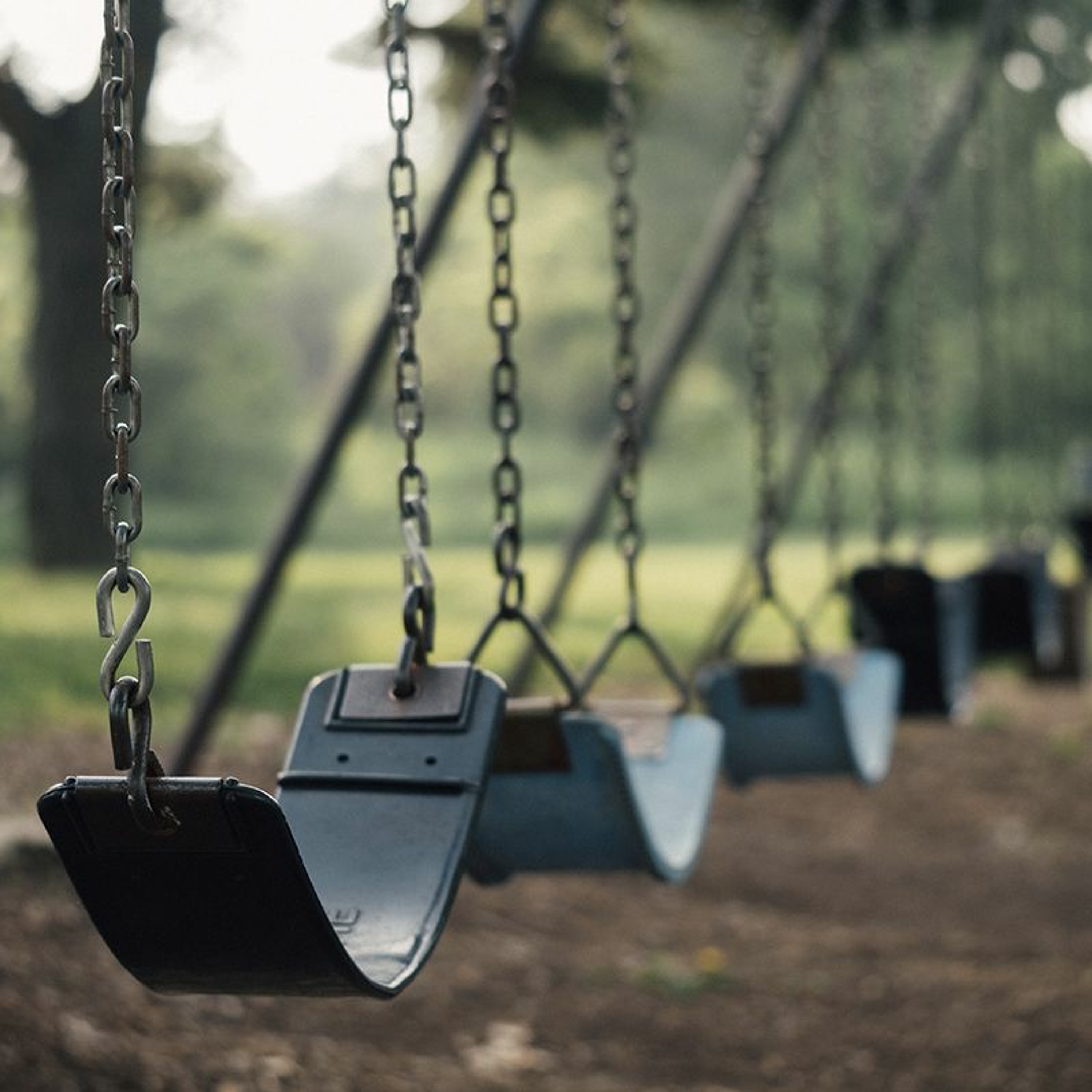
Research Minutes podcastRestorative Practices: Reducing Suspensions in PittsburghCatherine Augustine, director of the RAND Corporation's Pittsburgh Office, discusses one of the first ever rigorous evaluations of restorative practice in a city school district.
Augustine joins CPRE senior researcher Ryan Fink to discuss her findings, which included notable impacts on school climate and student suspension.
2019-02-2128 min
Research Minutes podcastMapping New York City’s ‘School Improvement Industry’New York City's "school improvement industry" - the myriad external groups and organizations working to help schools meet specific goals - is so large, and often so fragmented, that it can be difficult to even measure.
Thomas Hatch, a Columbia University researcher and co-director of the National Center for Restructuring Education, Schools, and Teaching, recently set out to map those organizations working to support K-3 reading in New York schools, and understand how they operate, interact, and impact education.
Hatch sits down with CPRE senior researcher Ryan Fink to discuss his new research brief - "The Role of External Support...
2019-02-0725 min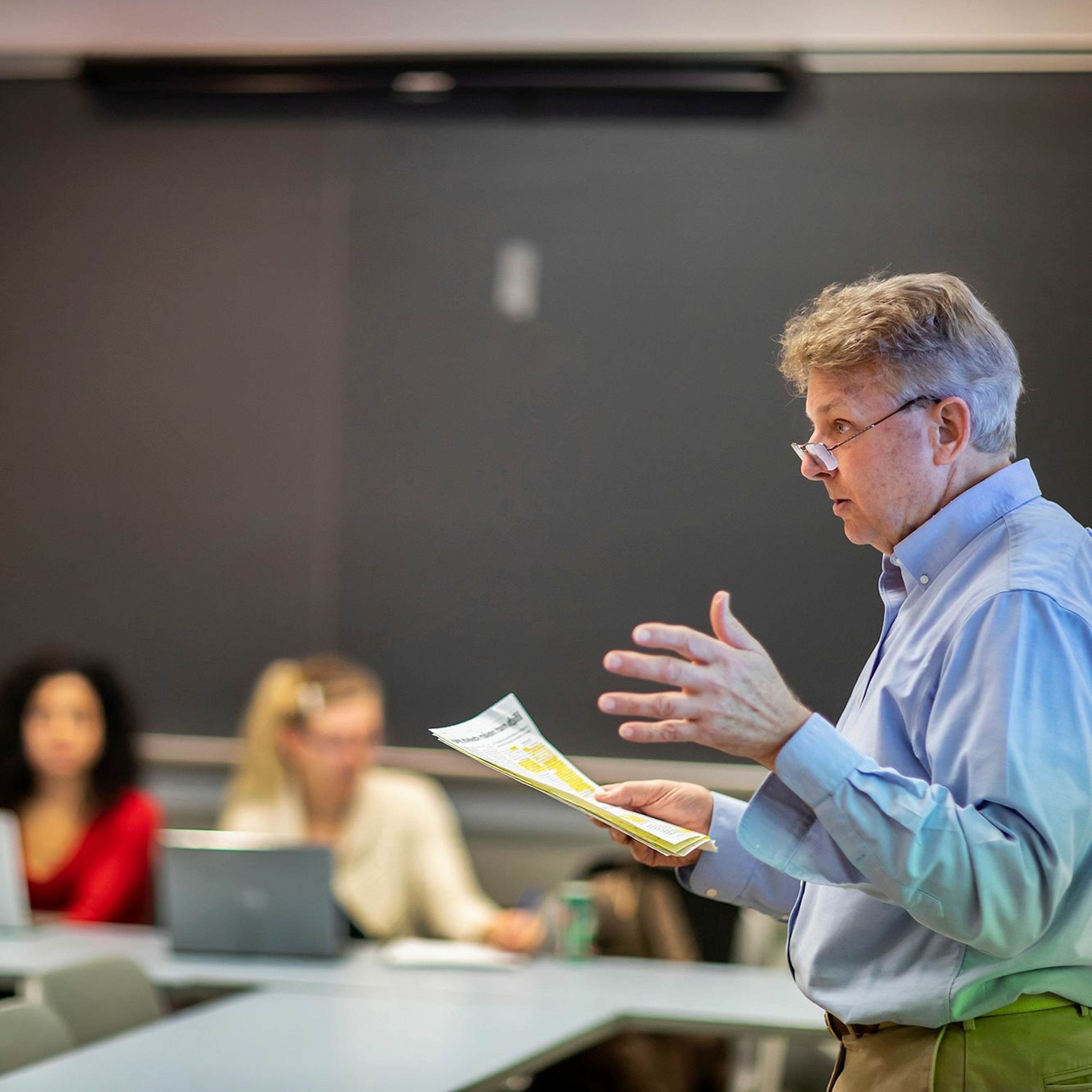
Research Minutes podcastThe Transformation of the Teaching WorkforceInternationally acclaimed researcher Richard Ingersoll discusses his new edition of "Seven Trends: The Transformation of the Teaching Force," a landmark study examining 30 years of data on the teacher labor market.
Ingersoll joins CPRE Director Jonathan Supovitz to highlight a number of key findings, including an ongoing "greening" of the workforce and an "unheralded victory" for minority recruitment initiatives. Ingersoll also provides some important takeaways for those hoping to understand, and make use of, the latest data on America's teachers.
2019-01-3020 min
Research Minutes podcastHow Do College Students Use Advanced Placement Credit?High schools throughout the U.S. are expanding opportunities for students to earn college credit before graduation. And while many studies have examined the connections between advanced placement credit and college achievement, few have identified exactly what students are doing with those credits at the post-secondary level.
Peabody College, Vanderbilt University researcher Brent Evans recently led a national study to find out. He joins CPRE Research Specialist Robert Nathenson to discuss his findings and their potential implications for school districts, states, colleges, and policymakers.
Guest hosted by Peter Horn, of the Point of Learning podcast.
2018-12-1919 min
Research Minutes podcastBooks, Tablets and Screens: The Science of Reading in a Digital AgeMaryanne Wolf, renowned literacy scholar and author of "Proust and the Squid," joins CPRE Director Jonathan Supovitz to discuss the latest scientific research on reading, learning, and the impact of digital screens.
She also shares insights from her upcoming book "Reader Come Home: The Reading Brain in a Digital World," her new article in Kappan Magazine, and offers advice for teachers, leaders, and everyday readers hoping to adapt to a digital world.
Part of the CPRE Knowledge Hub and Kappan Magazine's 'What We've Learned About Learning" podcast series. To read more about learning science and education, pick up the Dec...
2018-12-1129 min
Research Minutes podcastLearning from Cognitive Psychology: Four Strategies for the ClassroomRenowned cognitive scientist, author, and former K-12 teacher Pooja Agarwal joins CPRE senior researcher Abigail Gray to share four simple, science-backed strategies to improve teaching and learning.
She also shares insights from her upcoming book "Powerful Teaching: Unleash the Science of Learning," her new article in Kappan Magazine, and provides a wealth of free resources for teachers and policymakers hoping to close the gap between learning science and the classroom.
Part of the CPRE Knowledge Hub and Kappan Magazine's 'What We've Learned About Learning" podcast series. To read more about learning science and education, pick up the Dec/Jan 2018 issue...
2018-12-0618 min
Research Minutes podcastNeuromyths: What We Know About the Learning BrainRenowned researcher, author, and former teacher Tracey Tokuhama-Espinosa joins CPRE Director Jonathan Supovitz to discuss "neuromyths," those false or misinterpreted facts we continue to believe about the human brain.
She also shares insights from her new book "Neuromyths: Debunking False Ideas About the Brain," her new interview in Kappan Magazine, and offers suggestions for teachers, education researchers, and policymakers hoping to move past debunked theories and bring the latest brain science to the classroom.
Part of the CPRE Knowledge Hub and Kappan Magazine's 'What We've Learned About Learning" podcast series. To read more, pick up the Dec/Jan 2018 issue of...
2018-12-0423 min
Research Minutes podcastCan Students Evaluate Online Sources?In a world of "fake news," "advertorials," "sponsored posts," and other potentially misleading content, the ability to properly vet social and political information online has become a vital skill. But are we properly teaching it to students?
A new study led by Stanford University's Sarah McGrew finds that students at nearly all levels - from middle school through college - struggle to evaluate online information, and often fail to ask essential questions regarding the origins and motives of various content.
McGrew sits down with CPRE Research Specialist Robert Nathenson to discuss her findings and offer some tips and free resources...
2018-11-1521 min
Research Minutes podcastHow Will the Midterms Impact Education?On a special edition of Research Minutes, Drew University researcher and renowned education policy expert Patrick McGuinn speaks with CPRE Director Jonathan Supovitz about the 2018 midterm elections and what they could mean for public education.
How would a so-called "Blue Wave" - or Republic victories in the House and Senate - impact issues like federal and state education funding, student civil rights, school infrastructure, or recent proposals for "tuition-free" college?
McGuinn also discusses the agenda items that will be facing state and federal lawmakers regardless of party control, including teacher pay, pension funding, and higher education accountability.
2018-11-0117 min
Research Minutes podcastIs Free and Reduced-Price Lunch a Valid Measure of Disadvantage?For decades, researchers and education officials have used the National School Lunch Program as a key indicator of economic disadvantage.
Federal and state officials gauge student need and guide millions of dollars in education funding based on enrollment for free or reduced-price lunch. Now, new research suggests this indicator may not be as valid as it seems.
In this edition of Research Minutes we speak with Thurston Domina, researcher with the University of North Carolina at Chapel Hill and lead author of a new, multi-state study of education records, household income, and census data, which sheds new light on this...
2018-10-2317 min
Research Minutes podcastWhat Guides Today’s Pre-K Programs?As states increasingly call for standards-based Pre-K programs, teachers and administrators often struggle to balance traditional child development practice with external standards and policies.
In this edition of Research Minutes we welcome University of Wisconsin-Madison researcher Elizabeth Graue, lead author of a new, multi-state, comparative case study titled "What Guides Pre-K Programs?" published in Teachers College Record in August 2018.
Graue joins CPRE Director Jonathan Supovitz (University of Pennsylvania) to discuss her findings and their implications for Pre-K administrators, teachers, and policymakers.
2018-09-2721 min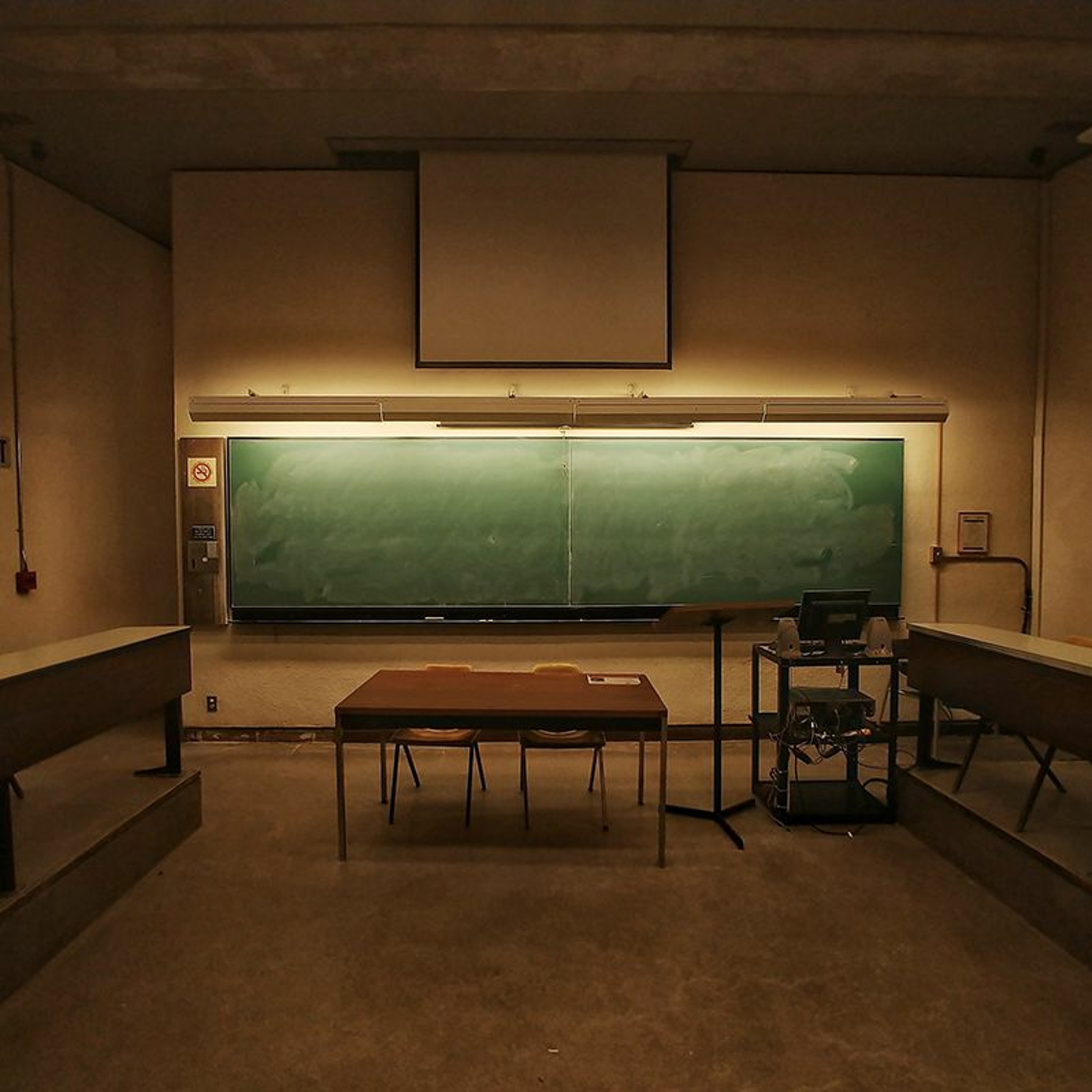
Research Minutes podcastHigher Education DesertsDespite a growing demand for post-secondary education in communities across the U.S., millions of residents currently live in what researchers call “higher education deserts,” areas where students have limited or no access to a public, broad-access four-year university.
On this episode of Research Minutes we speak with University of Wisconsin-Madison researcher Nicholas Hillman, one of a small number of researchers currently studying higher education deserts and their impacts on local students and families.
Hillman joins CPRE research specialist Robert Nathenson to discuss his research and offer some tips to those hoping to understand and address this unique problem.
2018-09-1333 min
Research Minutes podcastPerformance Assessment for Principal LicensureFor many years, new candidates for principal licensure have typically been assessed on their professional experience, education, and their performance on a written or online leadership exam.
Recently, however, some states have begun exploring performance assessments for principal licensure, requiring candidates to demonstrate skills and proficiency in key leadership areas.
On this edition of Research Minutes we speak with Fordham University researcher Margaret Terry Orr, who spent the last five years working with the Commonwealth of Massachusetts as it rolled out new leadership preparation training and performance assessment requirements for principal candidates.
Orr, who is now working on a similar...
2018-09-0625 min
Research Minutes podcastDelivering on the ‘Pittsburgh Promise’Established in 2008 as a partnership between the City of Pittsburgh, Pittsburgh Public Schools, and the University of Pittsburgh Medical Center, The Pittsburgh Promise has since provided more than $120 million in college scholarships to eligible graduates of Pittsburgh's public schools.
But is it working?
On this episode of Research Minutes, University of Pittsburgh School of Education researcher Lindsay Page speaks with CPRE researcher Robert Nathenson (University of Pennsylvania) about her recent study of the Pittsburgh Promise and its impacts on college enrollment and persistence.
Her study, The Promise of Place-Based Investment in College Access and Success: Investigating the Impact of the...
2018-07-3118 min
Research Minutes podcastWhat Research Do State Education Agencies Need?Carrie Conaway, chief research and strategy officer for the Massachusetts Department of Elementary and Secondary Education, speaks with CPRE Knowledge Hub Director Bobbi Newman about her analysis of state-level research needs and provides tips for both researchers and policy makers hoping for more effective collaboration.
2018-06-2612 min
Research Minutes podcastRethinking the Research-Practice ConnectionEducation researcher Elizabeth Farley-Ripple (University of Delaware) speaks with CPRE Knowledge Hub Director Bobbi Newman about a new conceptual framework for researchers and practitioners, and its potential to inform new, more collaborative approaches to educational research.
2018-05-2908 min
Research Minutes podcastReplicating the Success of 'Reading Recovery'CPRE Hub director Bobbi Newman speaks with CPRE senior researchers Henry May (University of Delaware), Abigail Gray (University of Pennsylvania), and Philip Sirinides (University of Pennylvania) about their monumental study of Reading Recovery, a national intervention designed to improve literacy achievement in struggling first-graders.
2018-05-2211 min
Research Minutes podcastImpact of College Counseling on Enrollment and Persistence of Low Income StudentsJoshua Goodman, Associate Professor of Public Policy at the Harvard Kennedy School, sits down with CPRE, Research Specialist, Robert Nathenson to discuss Benjamin Castleman and Joshua Goodman's study, Intensive College Counseling and the Enrollment and Persistence of Low Income Students, which was published in the journal, Education Finance and Policy in January 2018. Goodman shares the findings of their study on the impact of intensive college counseling to improve college enrollment and completion for disadvantaged students and the importance of studying interventions in education.
2018-04-0313 min
Research Minutes podcastSchool Boards and Balanced Governance—
The CPRE Knowledge Hub is headquartered at the University of Pennsylvania Graduate School of Education. For more videos, podcasts, research analysis, and interactive discussion in the realm of education, visit http://www.cprehub.org or follow @cprehub on Twitter.
2018-02-2311 min
Research Minutes podcastTrends in School Readiness GapsStanford University endowed Professor of Poverty and Inequality in Education joins Research Minutes to talk about his study Recent Trends in Income, Racial, and Ethnic School Readiness Gaps at Kindergarten Entry with CPRE –UPenn researcher, Ryan Fink. Reardon's study was recently published in American Educational Research Association's OPEN journal. Reardon analyzes school readiness trends through lenses of several demographic differences and factors.
Have thoughts on this podcast? Head to KH Conversations, our discussion forum, and join the conversation!
2017-10-2115 min
Research Minutes podcastELLs in the School District of PhiladelphiaFormer Delegated Director of the U.S. Department of Education’s Institute of Education Sciences, Ruth Curran Neild talks with CPRE Knowledge Hub's Co-Director Bobbi Newman about her study Finding their Stride: Kindergarten English learners and time to proficiency in the school District of Philadelphia which was co-authored with Joshua Lin. Lin is a researcher at Philadelphia Education Research Consortium (PERC) where Curran Neild is the Director.
2017-10-1113 min
Research Minutes podcastThe Educational Benefits of Attending Higher Performing SchoolsDirector of the University of Chicago Consortium on School Research Elaine Allensworth joins CPRE Knowledge Hub Director Bobbi Newman to talk about her study, The Educational Benefits of Attending Higher Performing Schools: Evidence from Chicago High Schools, recently published in Educational Evaluation and Policy Analysis. Allensworth analyzes the positive and negative impact on students who attend a higher performing school.
Have thoughts on this podcast? Head to KH Conversations, our discussion forum, and join in the conversation!
2017-09-2709 min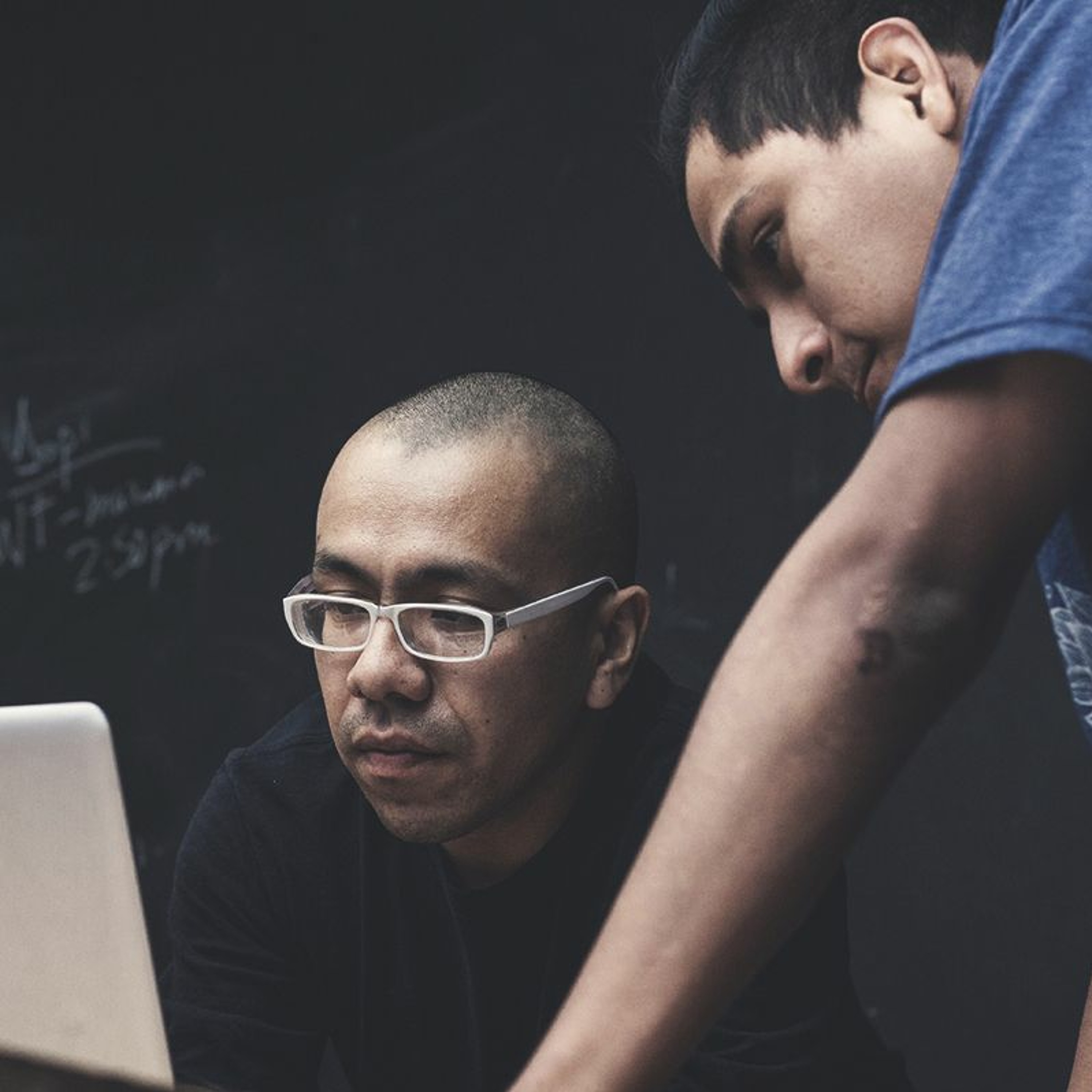
Research Minutes podcastLong-Term Improvement Rates for TeachersLong-Term Improvement Rates for Teachers by CPRE Research
2017-08-0909 min
Research Minutes podcastTurnover Rates of Alternatively Certified TeachersTurnover Rates of Alternatively Certified Teachers by CPRE Research
2017-07-3109 min
Research Minutes podcastMinority Teachers and Student PerceptionMinority Teachers and Student Perception by CPRE Research
2017-07-1211 min
Research Minutes podcastEarly and Persistent Science Education Achievement GapsEarly and Persistent Science Education Achievement Gaps by CPRE Research
2017-06-1607 min
Research Minutes podcastMeasuring Principal DevelopmentMeasuring Principal Development by CPRE Research
2017-06-0107 min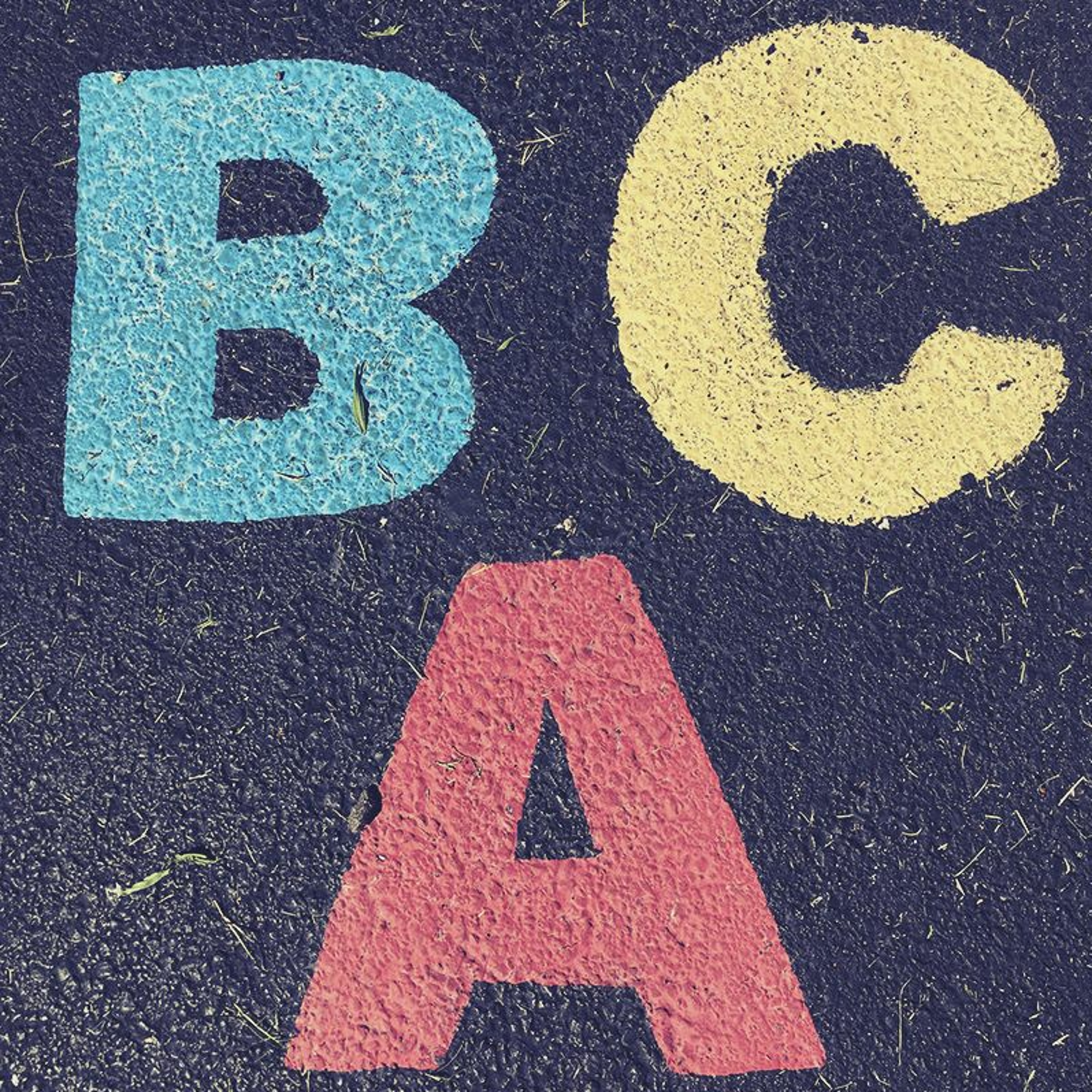
Research Minutes podcastRe-classifying English Language LearnersUniversity of Oklahoma Assistant Professor Deven Carlson joins CPRE Knowledge Hub Director Bobbi Newman to talk about the nature of re-classifying English Language Learners through testing, how this can create challenges for those students, and certain ways that have been utilized to support this segment of the education population.
2017-05-1808 min
Research Minutes podcastAn Intervention for Struggling, Adolescent ReadersAn Intervention for Struggling, Adolescent Readers by CPRE Research
2017-05-1111 min
Research Minutes podcastThe Past, Present and Future of the Common CoreThe Past, Present and Future of the Common Core by CPRE Research
2017-04-2512 min
Research Minutes podcastTeacher Reflection and Instructional ChangeTeacher Reflection and Instructional Change by CPRE Research
2017-03-2706 min